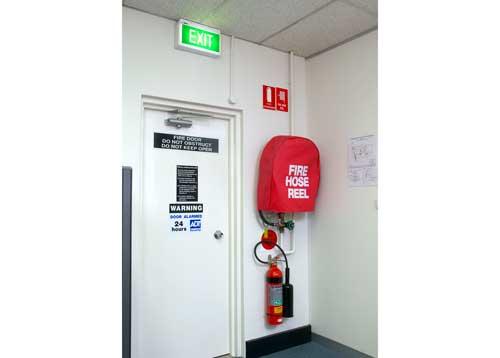With the onset of winter and short, colder days, fire protection specialist Wormald is warning businesses to be extra vigilant about using portable heaters and electrical appliances in the workplace. According to Peter Fermor, general manager with Wormald, “Regardless of what industry you’re in, electrical fire hazards exist in almost every workplace. These hazards can increase during the winter months as a result of the increased use of electrical heaters and other equipment. We would advise against the use of portable heaters; however, if they are in use, it is important that they have been adequately serviced and are in proper working order.” Fire costs New Zealand an average of $50million* per year in commercial property damage alone. This excludes the costs associated with loss of output due to damage, as well as direct or indirect injury costs.
Fermor continues, “Fire can impact businesses with significant costs resulting from personal injuries, damage to plant and property and lengthy downtimes. Being adequately prepared is vital and can help to minimise such impacts. It is essential that business owners and managers identify and assess all fire hazards in their workplace and understand the level of risk associated with those hazards. “Almost all electrical equipment is potentially hazardous and can cause serious injury or damage if improperly used or maintained. Many workplace fires can be attributed to malfunctions in electrical equipment due to overworking, inappropriate use, inadequate ventilation or overheating, neglect, ageing or lack of maintenance.”
Wormald recommends the following to help reduce the risk of electrical fires in the workplace:
- If using portable fan heaters, avoid placing them under desks or in enclosed spaces. The heat from these units can cause paper or other combustible material to catch on fire or melt the insulation around electrical appliances.
- Multi-way outlets and extension cords are often used in the workplace due to the number of devices and machines operating at any one time. Do not overload electrical circuits and extension cords as such overloads can result in a fire.
- The use of unsafe, poorly maintained and/or poor quality electrical appliances should be avoided as they can develop electrical shorts which could result in a fire. Careful attention should be given to the condition of equipment and extension cords, including regular maintenance and testing by qualified tradespeople. All appliances should be turned off when not in use.
- Replace any electrical tool or apparatus if it causes even the smallest electrical tingle/shock, shows evidence of overheating, shorts out (e.g. trips a circuit breaker), or gives off smoke or sparks.
- Electrical office equipment such as computers, printers, scanners and shredders should be checked and tested regularly to ensure their power cords are not defective, frayed or improperly connected. Cords should never be placed on or near hot surfaces, such as radiators, or fastened to walls or windows or pushed tightly against or behind furniture such that the cord could become acutely bent, compressed or damaged.
- Working on "live equipment" is a serious hazard. Before cleaning, adjusting or applying flammable solutions, electrical machines should be disconnected.
- Combustible material such as cardboard boxes and paper should not be stored or allowed to build up in inappropriate locations near sources of heat or ignition.
*The Cost of Managing the Risk of Fire in New Zealand: Report by BERL for The New Zealand Fire Service Commission 2005



